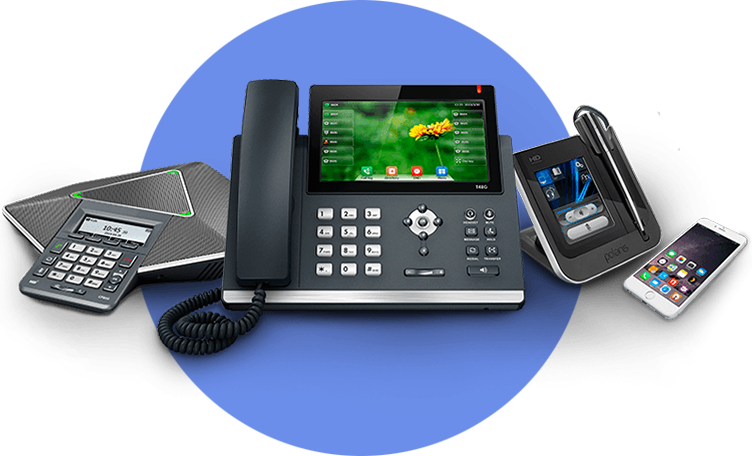
In today’s digital world, communication is an essential aspect of any business. With the rise of remote work and globalization, it has become imperative for companies to invest in the right communication tools. Two popular options in this regard are hard phones such as IP Phones and softphones. In this blog post, we’ll explain the differences between the two and why a business would want to use either one or both at the same time.
What is a Hard Phone?
A hard phone is a physical device that looks and functions like a traditional phone. It connects to the internet through an Ethernet cable and requires a PBX system to work. PBX stands for Private Branch Exchange, and it’s a system that allows businesses to manage their internal phone network. Hard phones are typically used in offices where employees work from a desk and require a dedicated phone line.
What is a SoftPhone?
A softphone is a software-based application that allows users to make phone calls using their computer or mobile device. It uses the internet to connect to a VoIP (Voice over Internet Protocol) service provider. Softphones are popular among remote workers who need to communicate with colleagues and clients over long distances. They can be used on any device with an internet connection, making them highly versatile.
Why would a business want to use a Hard Phone?
A hard phone is an excellent choice for businesses that require a dedicated phone line for each employee. They are highly reliable and offer superior call quality. Additionally, they offer a range of features that can be customized to meet the specific needs of a business. For example, hard phones can be programmed to automatically route calls to the right department, reducing the workload of receptionists and improving customer service.
Why would a business want to use a SoftPhone?
A softphone is an excellent choice for businesses that have remote workers or employees who travel frequently. Softphones allow these workers to make phone calls from any location with an internet connection, which is particularly useful for international calls. Additionally, softphones are cost-effective as they eliminate the need for physical phones and the associated maintenance costs. They also offer a range of features, such as video conferencing and screen sharing, that can help teams collaborate more effectively.
Why would a business want to use both Hard and Soft Phones?
Many businesses choose to use both hard and soft phones to take advantage of the unique benefits of each. For example, a business may use hard phones in the office and softphones for remote workers. This allows them to have a consistent communication system across all employees while still providing flexibility for those who work outside the office. Additionally, using both hard and soft phones can provide redundancy in case of a network outage or hardware failure. This ensures that employees can continue to communicate with customers and colleagues even in the event of an unexpected disruption.
In conclusion, both hard phones and softphones have their unique benefits, and the choice of which one to use depends on the specific needs of a business. While hard phones are reliable and offer superior call quality, soft phones are cost-effective and highly versatile. Many businesses choose to use both to take advantage of the benefits of each. Regardless of which option a business chooses, investing in the right communication tools is essential for success in today’s global marketplace.
Here is a list of popular hard phone models used by businesses:
- Cisco IP Phone
- Avaya 9600 Series IP Deskphones
- Polycom VVX Series IP Phones
- Yealink T4 Series IP Phones
- Grandstream GXV Series IP Phones
- Mitel 6900 Series IP Phones
- Panasonic KX-NT Series IP Phones
- Snom D7xx Series IP Phones
- Sangoma s-Series IP Phones
- Fanvil X Series IP Phones
Here is a list of popular softphone applications used by businesses:
- Zoom
- Skype for Business
- Microsoft Teams
- Google Meet
- Cisco Webex
- RingCentral
- 8×8
- Vonage Business
- Nextiva
- Jitsi Meet
- Consumer Information Solutions
